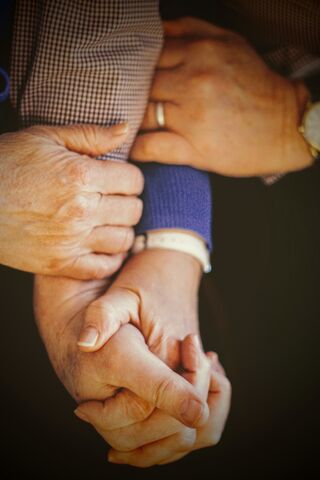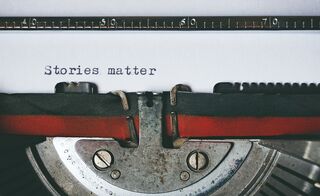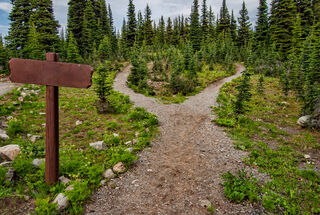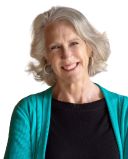Relationships
My Evolution From Childless Woman to Unabashed Elder
One woman's journey from marginalization to single, lusty elderhood.
Posted December 28, 2021 Reviewed by Ekua Hagan

On the cusp of my seventieth birthday, I’ve become an unabashed, childfree elder, a vigorous and vital woman who’s reclaimed her body just as it has begun its decline.
I found my voice in time to be well heard. My heart is wide open to care for more people than I’ll ever meet, in ways I never imagined. My life now hangs together as a fairly well-integrated whole, flaws and all.
In my twenties and early thirties, I quite enjoyed sex. These delights became a casualty of infertility treatments, with sex on demand and hopes dashed by monthly failures to conceive. Over the years after we quit trying, my decades-long marriage grew ever more distant. I found myself single again at 64.
The contrast between coupledom and singlehood, especially as a non-mom, is shocking and stark. Once part of a network of twosomes, I became a lone ranger, rounding out the odd-numbered table in hopes of staying in touch with those couples that stuck with me through the divorce.
I noticed, though, that even my childfree friends focused most of their attention on the other couples. Instead of clamming up and labeling myself inferior, I worked hard to find my voice and befriend a small cadre of likewise single compatriots.
Still, throughout the pandemic being a duo remained the norm, going solo a pity. I weathered most of COVID alone, thankful not to face this crisis while paired in an unhealthy relationship. I grew to enjoy my own company, periodically hosting dance parties for one with something more upscale for dinner than my usual salad. Living alone, I frequently engaged myself in solo conversations, often punctuated with laughter.

You might say I fell in love with me. I think that’s a sign I’d graduated from fledgling to full-throated elder, ready to grab life again and squeeze out all of what’s left. Finally, I feel whole and healthy.
I’ve lived in urban, rural, and suburban environments and changed careers at least half a dozen times. So many transitions, becoming and unbecoming who I was and now am.
While I used to be ashamed of my body and all the shenanigans I put it through in my early adulthood, after rereading my journals of the time with the eyes of today, I discovered an adventurous young me, someone not afraid to take risks to love, learn, and grow. I respect her now and see how crucial those formative years were to the woman I’ve since become.
Therapy supported deep and sustained work to heal the wounds of infertility and feelings of failure. I carried these wounds over years of losing loved ones to mothering, then grandmothering. Those were dark, lonely days, much more so than those spent living alone during a pandemic.
Girded by past healing, in the aftermath of my marriage I called on my now wizened courage to love, learn, and grow. Eventually, I claimed my place as a single and tried online dating. This ghastly forum of public exposure offered options to learn, with often flattering, yet sometimes brutal feedback from prospective matches, and a means to discover what’s crucial in matters of the heart.
My “divorce virginity” was lost at age 67, and I rediscovered the lusty physicality I’d feared was lost. I no longer compromise who I am to find the love I now generate from within.

When it comes to who I truly rely on, a family of choice now eclipses family of origin. Most dear to me are the ones who likewise don’t have kids, including those who identify as childless, ambivalent, and childfree. I’m richer when I value all perspectives.
Just like parents with various feelings about their role, I now see I contain a dynamic range of attitudes myself. Hence my personal shift to consciously choose a more childfree outlook. We support one another’s normalcy by accepting and celebrating our collective life experiences.
Gathering others’ stories into what was to become my book, Do You Have Kids? Life When the Answer Is No was pivotal in integrating the reality of my own life story. Too bad I didn’t know sooner about the potent medicine that lives within the stories of others. Every woman I interviewed for the book thanked me for listening. For most, it was the first time they’d ever been asked.
I knew the childfree could teach me a thing or two about how to fully occupy my place in the world, though their words sometimes stung. My skin thickened, though, and I’ve come to cherish their satisfaction with a childfree life as much as I do the soft center created by my journey of childlessness. When we discuss how not having kids impacts our lives, we uncover so many similarities, our differences become dwarfed.

These days, when I know and speak my truth, my voice rings clear. When I’m not sure what needs to be said, I now have the wisdom to take time out to reflect. Or seek guidance from those who might know. My own elders’ wisdom has proven particularly powerful.
When we find the courage to speak up about not having kids, we change lives—our own and those who open their hearts to hear and heal. We see one another and discover what it feels like to belong.
As a guest on podcasts and webinars, and during one-on-one conversations with non-parents and parents alike, I hold back nothing to debunk stigmas and stereotypes about non-parents. This is my life’s work and legacy. I’m joined in this effort by a remarkable cadre of publishers, writers, documentary filmmakers, broadcasters, event planners, and hosts.
With so much high-quality information available on so many platforms, we’re teetering on the tipping point of change. I just might live to see the day when it’s considered perfectly normal to be an adult who doesn’t have kids.
To fast-track that eventuality, today when I meet new people, I’m often the one asking the once-dreaded kid question. It’s become my gateway to advocacy, knowing most times their answer will be yes. By asking first, I control conversations that reveal my childless status. Without waiting for pity to take hold, I quickly launch into follow-up questions.
Some examples: Do you know others like me? (Everyone does.) Have you ever talked about what it’s really like for them? (Few have.) If you didn’t have kids yourself, what life choices do you think you’d make? (Such intriguing responses!)

I can honestly say I’m now glad I did not create children of my own. Sure, I tried for kids and might have become a stellar mom. But I could also have been an overprotective helicopter parent or a tyrant who harmed her progeny. I like that I’ll never know, and I like what I’ve become instead. By giving voice to the childless experience, my words change lives. So do yours.




